The Kenneth Rainin Foundation’s Scientific Advisory Board (SAB) provides scientific expertise to help us take smart risks, think creatively about how to best support promising IBD research and develop content for our annual Innovations Symposium. Meet the current and former members of our SAB below.
Current Scientific Advisory Board Members
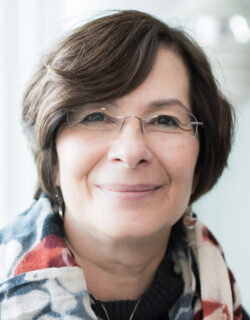
Bana Jabri, MD, PhD
Scientific Advisory Board Co-Chair
Dr. Bana Jabri is a pediatric gastroenterologist and an immunologist. She studies mechanisms underlying the development of complex intestinal inflammatory disorders with a particular focus on the interplay between the tissue, immune cells and the microbiota and its impact on the regulation and function of tissue resident T cells. Her research is primarily driven by the study of human tissues and immune cells, and aims at developing mechanistic hypotheses based on the discoveries made in patients and testing them in mouse and cellular models. Her laboratory is also involved in the development of preclinical models and clinical trials. She is Professor of Medicine, Pathology and Pediatrics, Vice Chair for Basic Research in the Department of Medicine, Director of Research for the Celiac Disease Center and co-Director of the Digestive Disease Research Center Core at the University of Chicago.
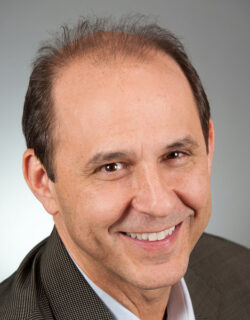
Scott Snapper, MD, PhD
Scientific Advisory Board Co-Chair
Dr. Scott Snapper is Director of the Center for Inflammatory Bowel Disease and Director of Basic and Translational Research at Harvard Medical School. He also serves as Director of IBD Research within the Gastroenterology Division at Brigham and Women’s Hospital. His laboratory is interested in the mechanisms that control immune responses and function in the gastrointestinal tract as well as host-microbial interactions that regulate immune homeostasis in the intestine.
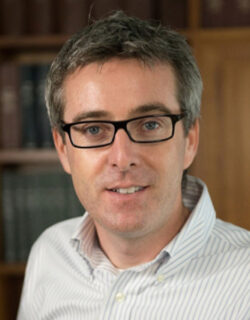
David Artis, PhD
Scientific Advisory Board Member
Dr. David Artis is the Michael Kors Professor of Immunology and Director of the Jill Roberts Institute for IBD Research at Weill Cornell Medical College in New York City. He has developed a research program focused on dissecting the pathways that regulate innate and adaptive immune cell function at barrier surfaces in the context of health and disease that also encompasses a significant effort to translate research findings in pre-clinical models into patient-based studies of immune-mediated diseases.

Janelle Ayres, PhD
Scientific Advisory Board Member
Dr. Janelle Ayres is a molecular and systems physiologist who studies evolutionary theory and microbes to understand how all of our physiological systems and our brain interact with each other to promote optimal health. Ayres’ research into how our physiologies are regulated by microbes and the mechanisms by which microbes affect us is paving the way to an entirely new understanding of normal and dysfunctional biological processes.

Kevin Grimes, MD, MBA
Scientific Advisory Board Member
Dr. Kevin Grimes is an Associate Professor of Chemical and Systems Biology and Co-Director of the SPARK program at Stanford University. His research interests include: translation of promising research discoveries into novel therapeutics and diagnostics; discovery and development of new drugs, biologics, and diagnostics; repurposing existing drugs against new targets for new clinical indications; and developing novel therapeutics and diagnostics for neglected global health problems.
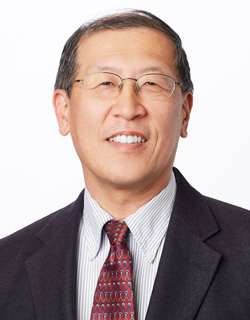
Averil Ma, MD
Scientific Advisory Board Member
Dr. Averil Ma is a gastroenterologist and immunologist. His laboratory studies molecular and cellular mechanisms underlying immune homeostasis and autoimmunity. His recent work focuses on the regulation of ubiquitin dependent cell signaling in immune cells. He is the Rainin Distinguished Professor of Medicine and Director of the Inflammatory Bowel Disease Center at University of California, San Francisco.
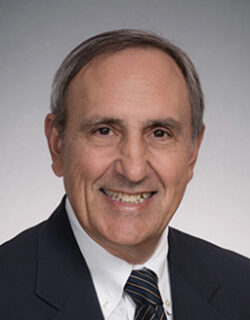
Samuel Miller, MD
Scientific Advisory Board Member
Dr. Samuel Miller is a Professor of Medicine, Microbiology, Immunology and Genome Sciences at the University of Washington. His laboratory is focused on defining the molecular basis of bacterial pathogenesis and interactions with eukaryotic cells, with a special emphasis on innate immune response to Gram-negative bacteria. In recent years, Dr. Miller has turned his attention to work on the development of methods and analysis pipelines to translate the analysis of metagenomics of the intestinal microbiome to the clinic for a variety of chronic diseases, including Inflammatory Bowel Disease and cystic fibrosis.
Former Scientific Advisory Board Members
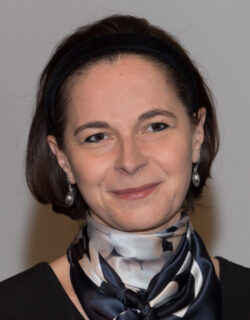
Yasmine Belkaid, PhD
Dr. Yasmine Belkaid, Chief, Mucosal Immunology Section, LPD, National Institute of Allergy and Infectious Disease (NIAID), obtained her PhD in 1996 from the Pasteur Institute in France on innate responses to Leishmania infection. Following a postdoctoral fellowship at NIAID on immune regulation during Leishmania infection, she joined the Children’s Hospital Research Foundation in Cincinnati as an assistant professor in 2002. In 2005, she joined the Laboratory of Parasitic Diseases as a tenure-track investigator. Since 2008, she has worked as an adjunct professor at the University of Pennsylvania. Her laboratory aims to understand the mechanisms controlling infection at barrier sites such as the skin and the gut. These two sites represent the first portal of pathogen exposure and are major anatomical sites for development of inflammatory disorders.
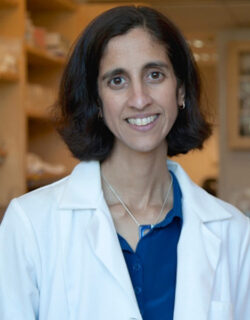
Tejal Desai, PhD
Dr. Tejal Desai is Professor and Chair of the department of Bioengineering and Therapeutic Sciences at the University of California, San Francisco. Dr. Desai directs the Laboratory of Therapeutic Micro and Nanotechnology where her research brings together advanced micro and nanotechnologies, fundamental insight into cellular behavior in engineered environments, and novel pharmacologic delivery approaches to address disease treatment and clinical translation. By taking advantage of an understanding of how cells respond to engineered materials and the ability to fabricate precise structural domains, her lab seeks to design new platforms to overcome existing challenges in therapeutic delivery.

B. Brett Finlay, PhD
Dr. B. Brett Finlay is a professor in the Michael Smith Laboratories, and the departments of Biochemistry and Molecular Biology, and Microbiology and Immunology at the University of British Columbia. Dr. Finlay’s research interests are focused on host-pathogen interactions, at the molecular level. By combining cell biology with microbiology, he has been at the forefront of the emerging field called Cellular Microbiology, making several fundamental discoveries in this field, and publishing over 400 papers. His laboratory studies several pathogenic bacteria, with Salmonella and pathogenic E. coli interactions with host cells being the primary focus.
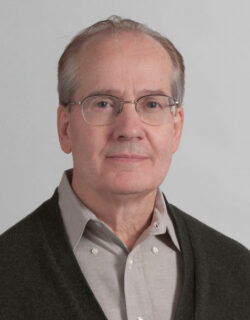
Claudio Fiocchi, MD
Dr. Claudio Fiocchi is Professor of Medicine at the Cleveland Clinic Lerner College of Medicine and a member of the Lerner Research Institute and Digestive Disease Institute, Cleveland Clinic. His research is focused on the pathogenesis of Inflammatory Bowel Disease (IBD), with the overall goal of uncovering fundamental molecular and cellular abnormalities that underlie the maintenance of a chronic state of inflammation in the intestinal tract. Dr. Fiocchi is the recipient of the Henry Janowitz Lifetime Achievement Award from the Crohn’s & Colitis Foundation of America and the Clifford and Jane Anthony Chair in Digestive Disease Research and Education. He is also an Honorary Foreign Member of the Brazilian Academy of Medicine.
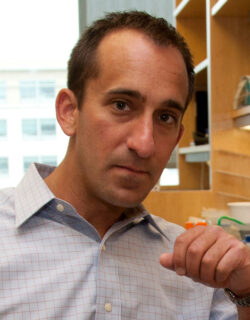
Michael Fischbach, PhD
Dr. Michael Fischbach is an Associate Professor in the Department of Bioengineering at Stanford University and a member of Stanford ChEM-H. His laboratory uses a combination of genomics and chemistry to identify and characterize small molecules from microbes, with an emphasis on the human microbiome. He is a recipient of the NIH Director’s Pioneer and New Innovator Awards, an HHMI-Simons Faculty Scholars Award, a Fellowship for Science and Engineering from the David and Lucille Packard Foundation, a Medical Research Award from the W.M. Keck Foundation, a Burroughs Wellcome Fund Investigators in the Pathogenesis of Infectious Disease award, and a Glenn Award for Research in Biological Mechanisms of Aging. He is a member of the board of directors of Achaogen, the scientific advisory boards of NGM Biopharmaceuticals, Cell Design Labs, and Indigo Agriculture, and is a co-founder of Revolution Medicines.

Dan R. Littman, MD, PhD
Dr. Dan R. Littman is Professor of Molecular Immunology at New York University, an investigator of the Howard Hughes Medical Institute, and a member of the National Academy of Sciences. He is best known for his work on T-lymphocytes. Dr. Littman is the recipient of numerous awards, including: The Vilcek Prize in Biomedical Science, the Ross Prize in Molecular Medicine, the AAI-Invitrogen Meritorious Career Award, and the New York City Mayor’s Award for Excellence in Science and Technology. He was elected as a member of the Institute of Medicine in 2012.
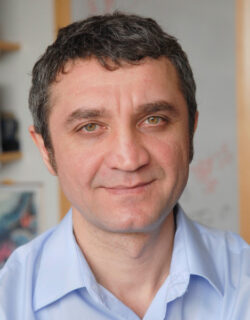
Ruslan Medzhitov, PhD
Dr. Ruslan Medzhitov is the David W. Wallace Professor of Immunobiology at Yale University School of Medicine. He is also an Investigator with the Howard Hughes Medical Institute. His research is focused on innate immunity and inflammatory diseases. Among his many awards are: The first annual Lurie Prize, the Searle Scholarship, the William B. Coley Award for Distinguished Research in Basic and Tumor Immunology from the Cancer Research Institute, a Master of Arts Privatum at Yale University, the Emil von Behring Award, American Association of Immunologists (AAI)–BD Biosciences Investigator Award, a Doctor Honoris Causae at the University of Munich, the Blavatnik Award for Young Scientists, the Howard Taylor Ricketts Award, and the Lewis S. Rosenstiel Award. In 2010, he was elected to the US National Academy of Sciences.
